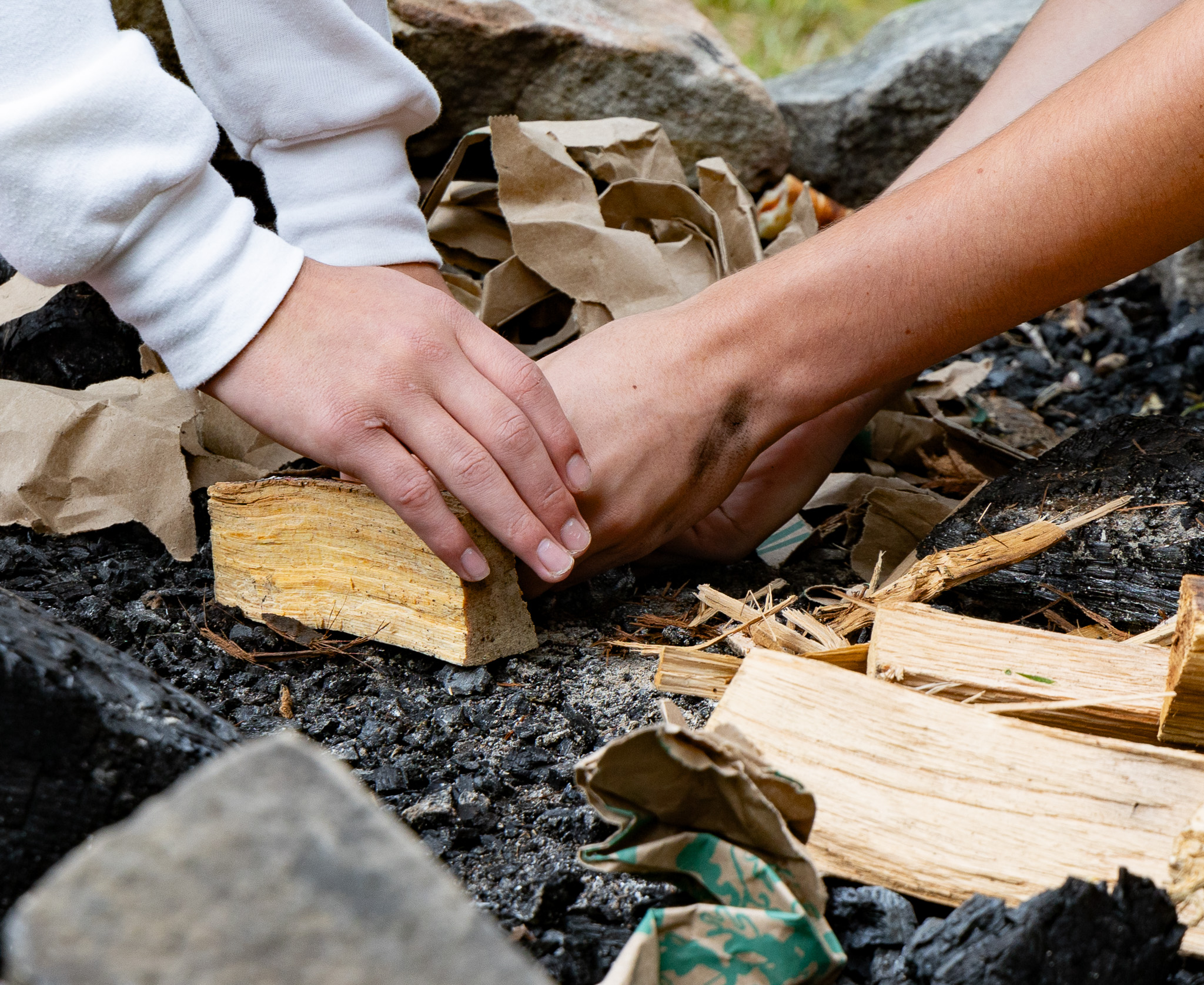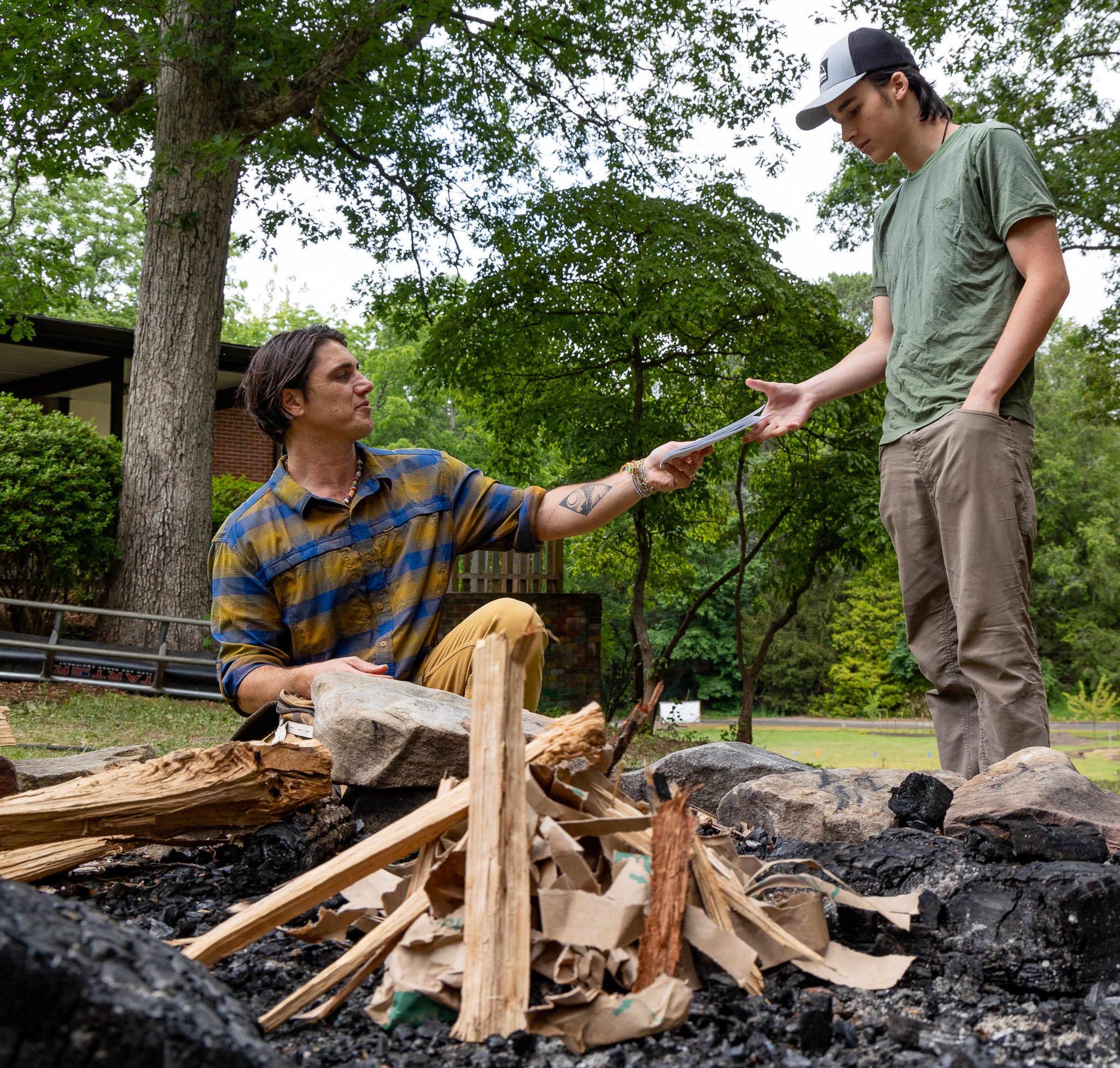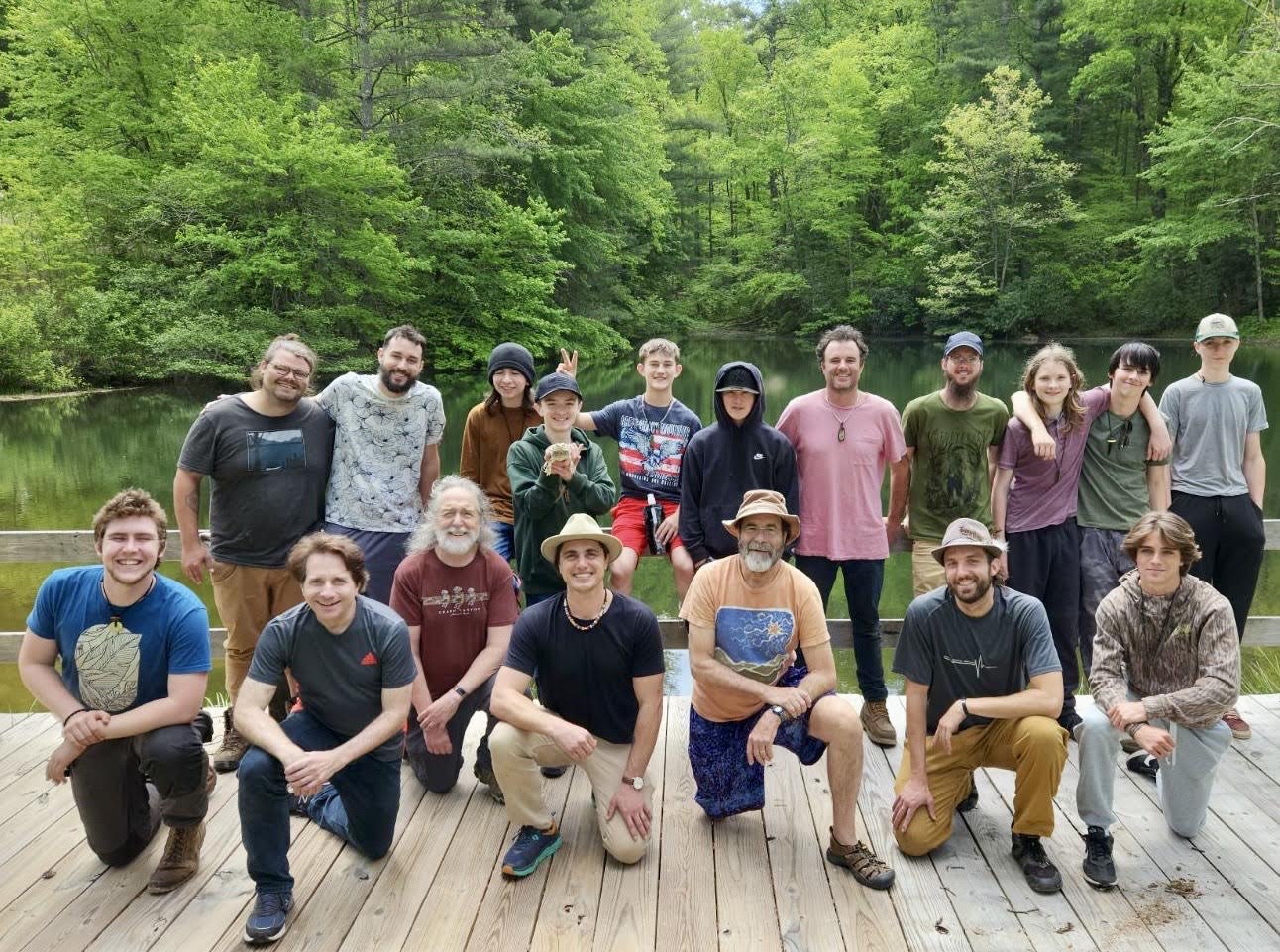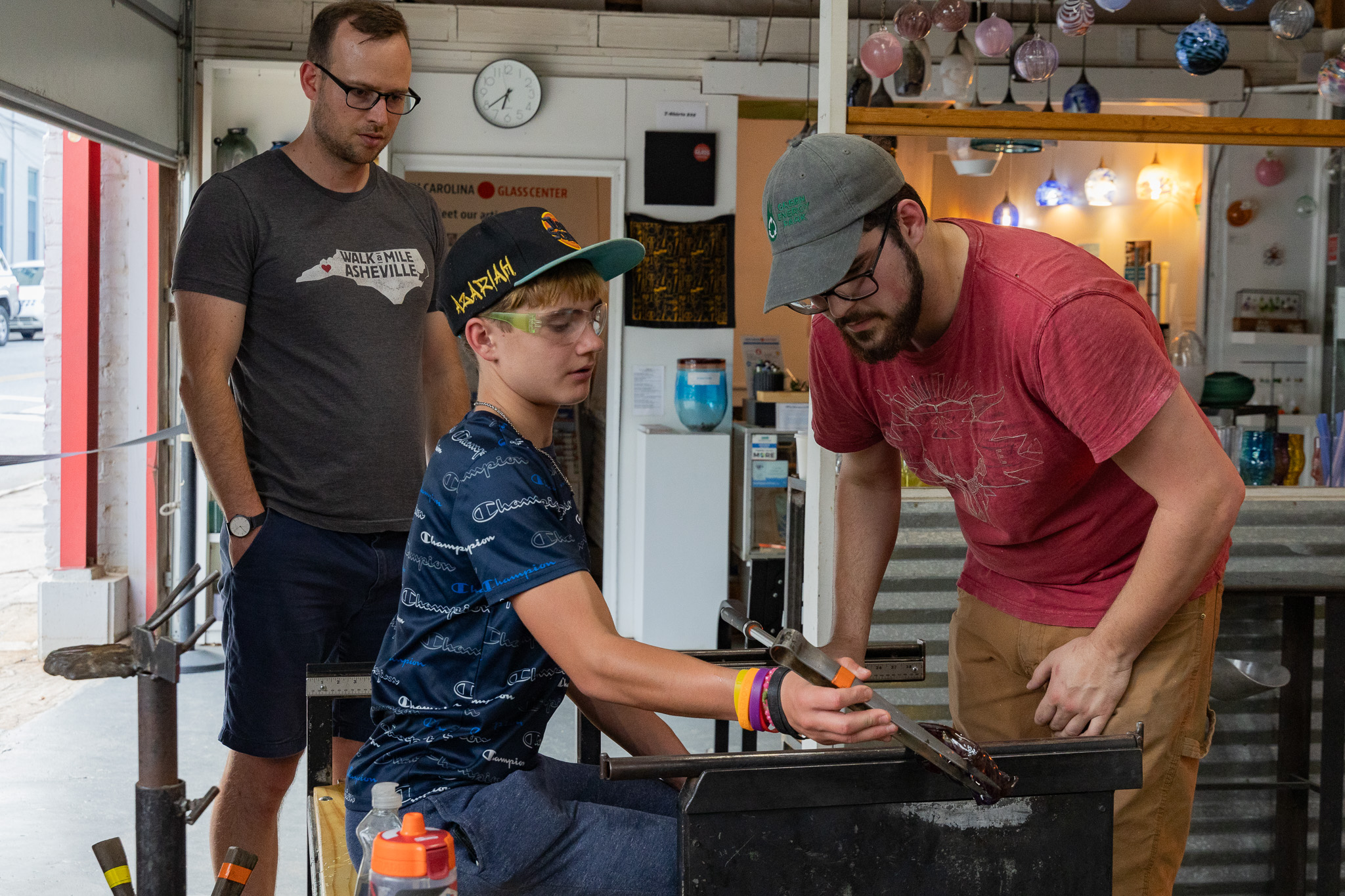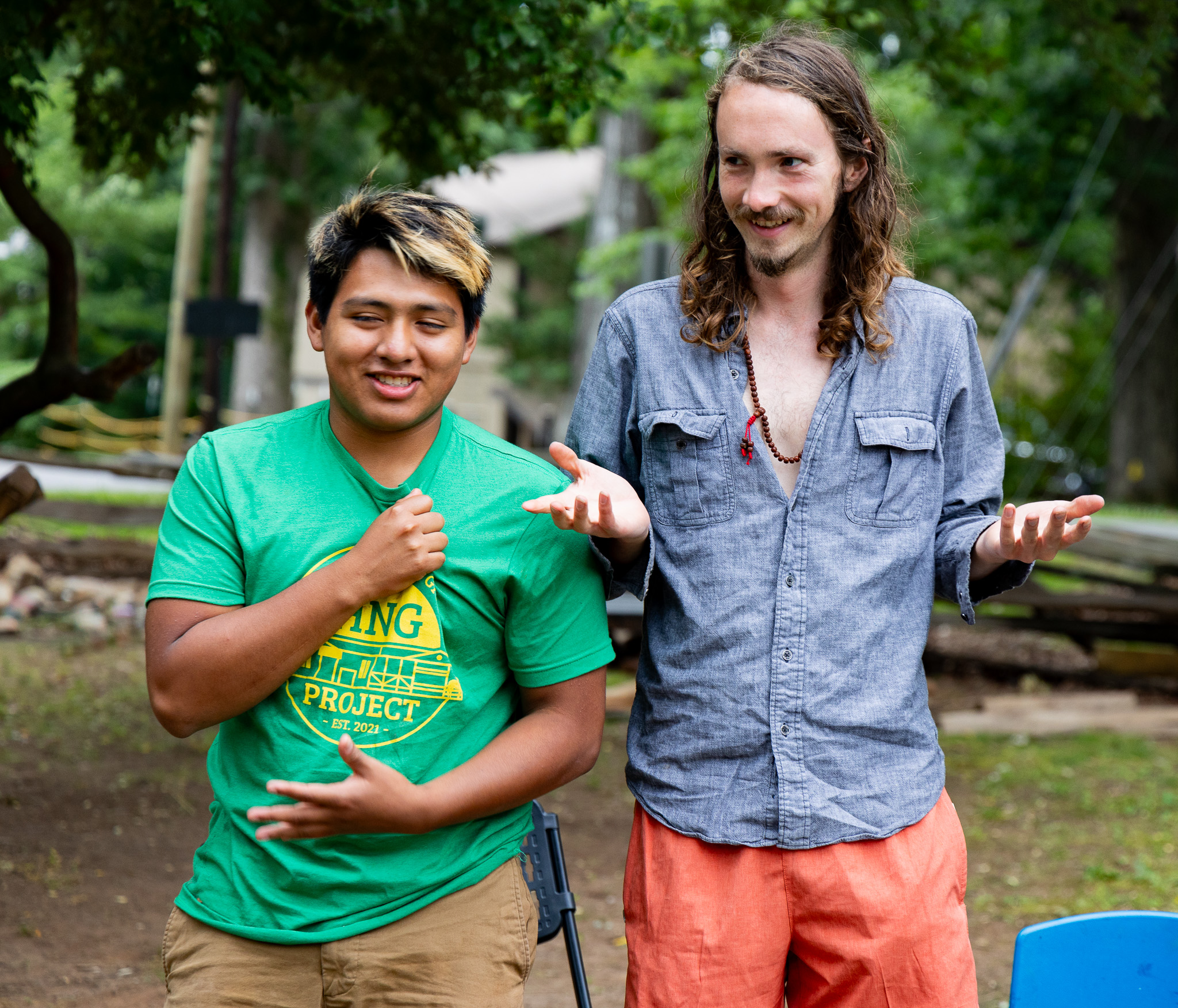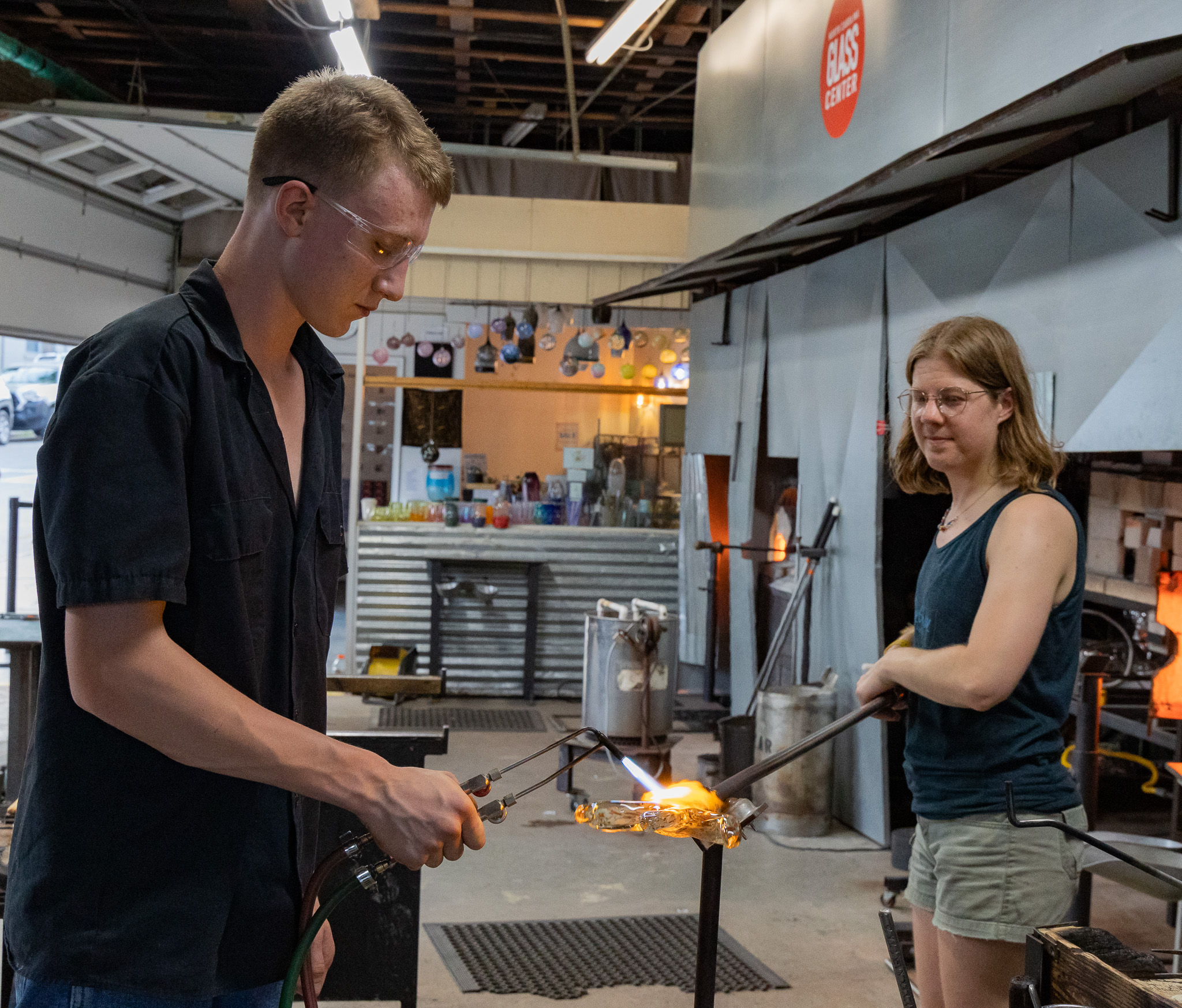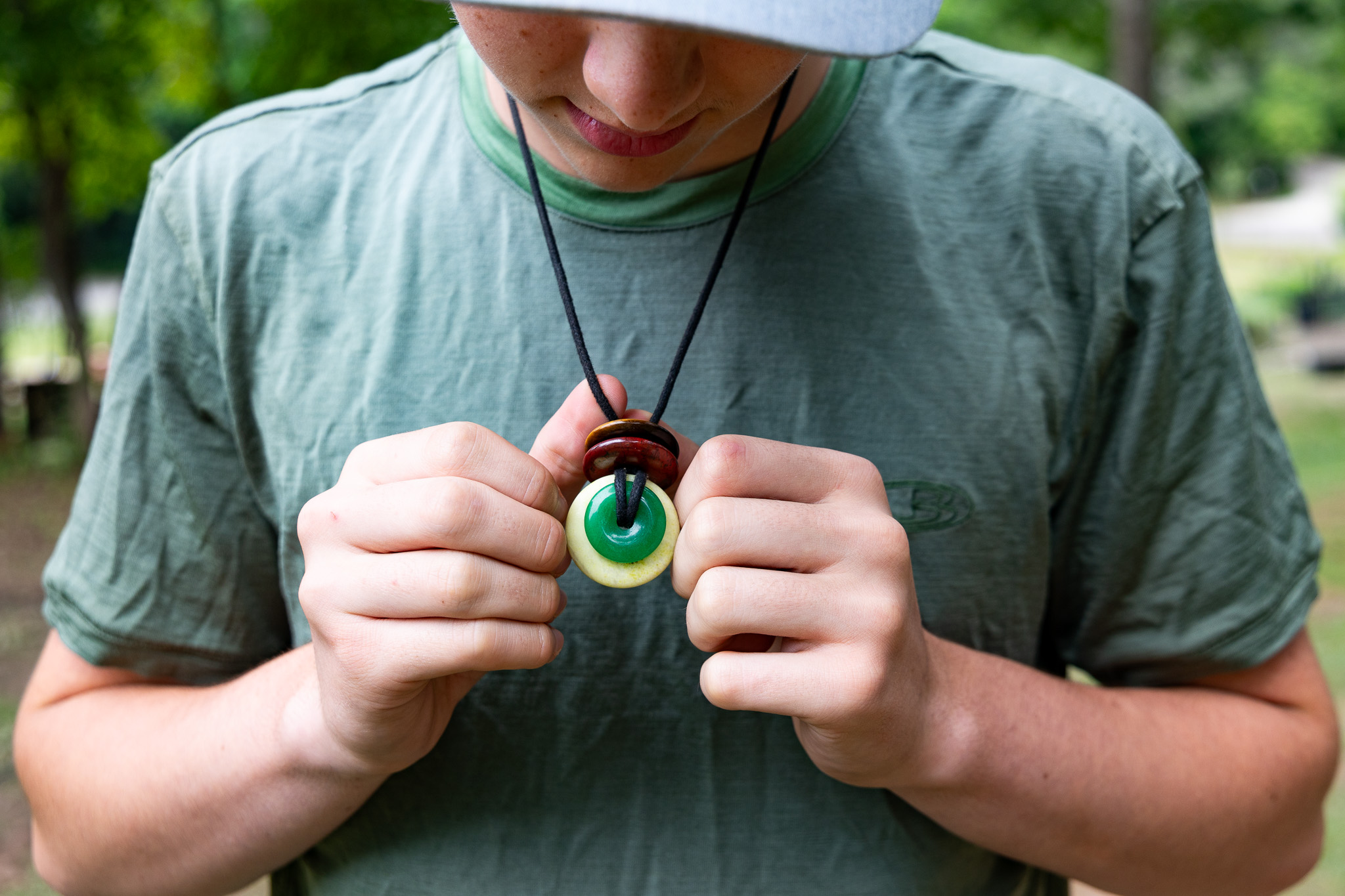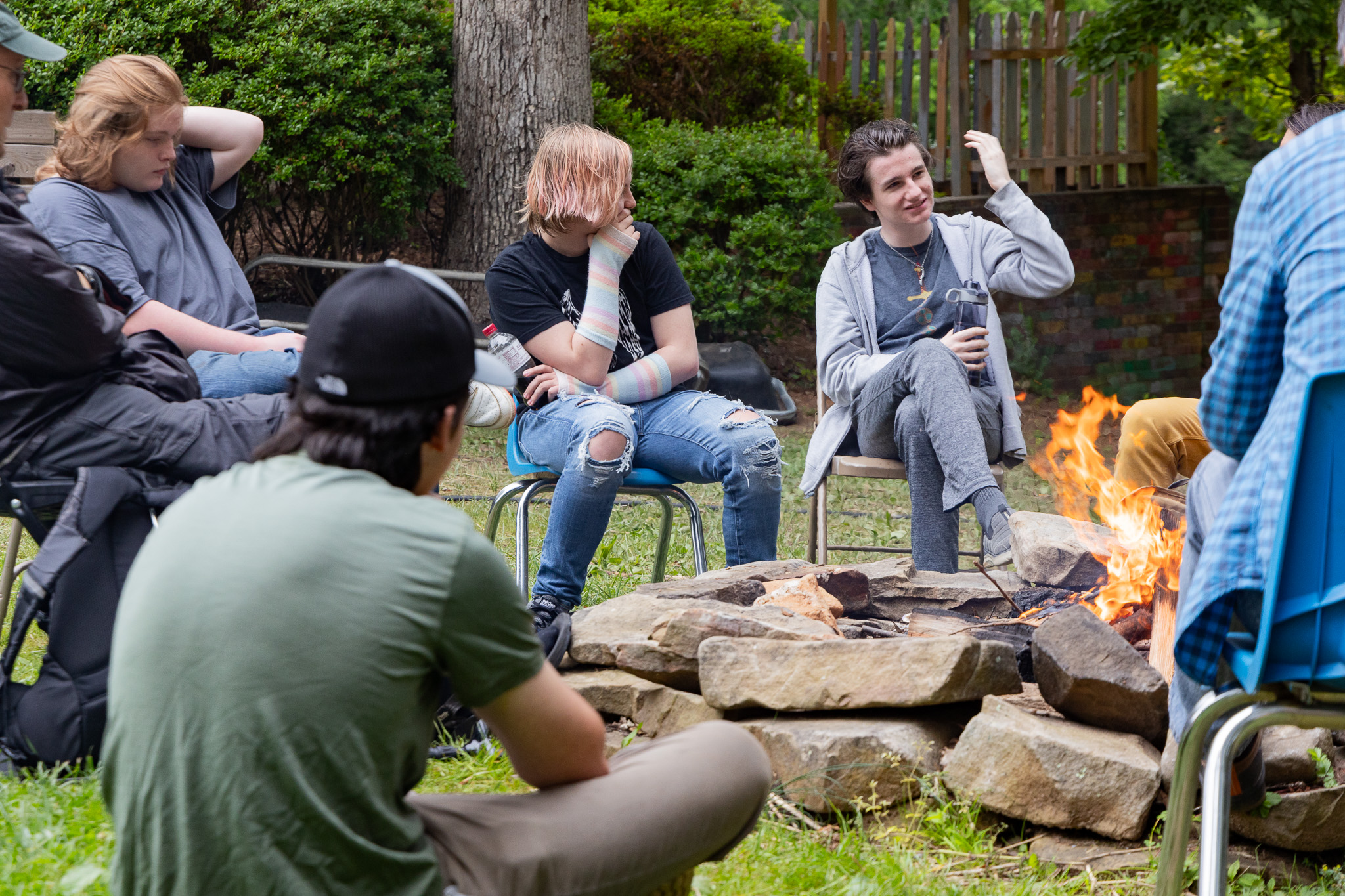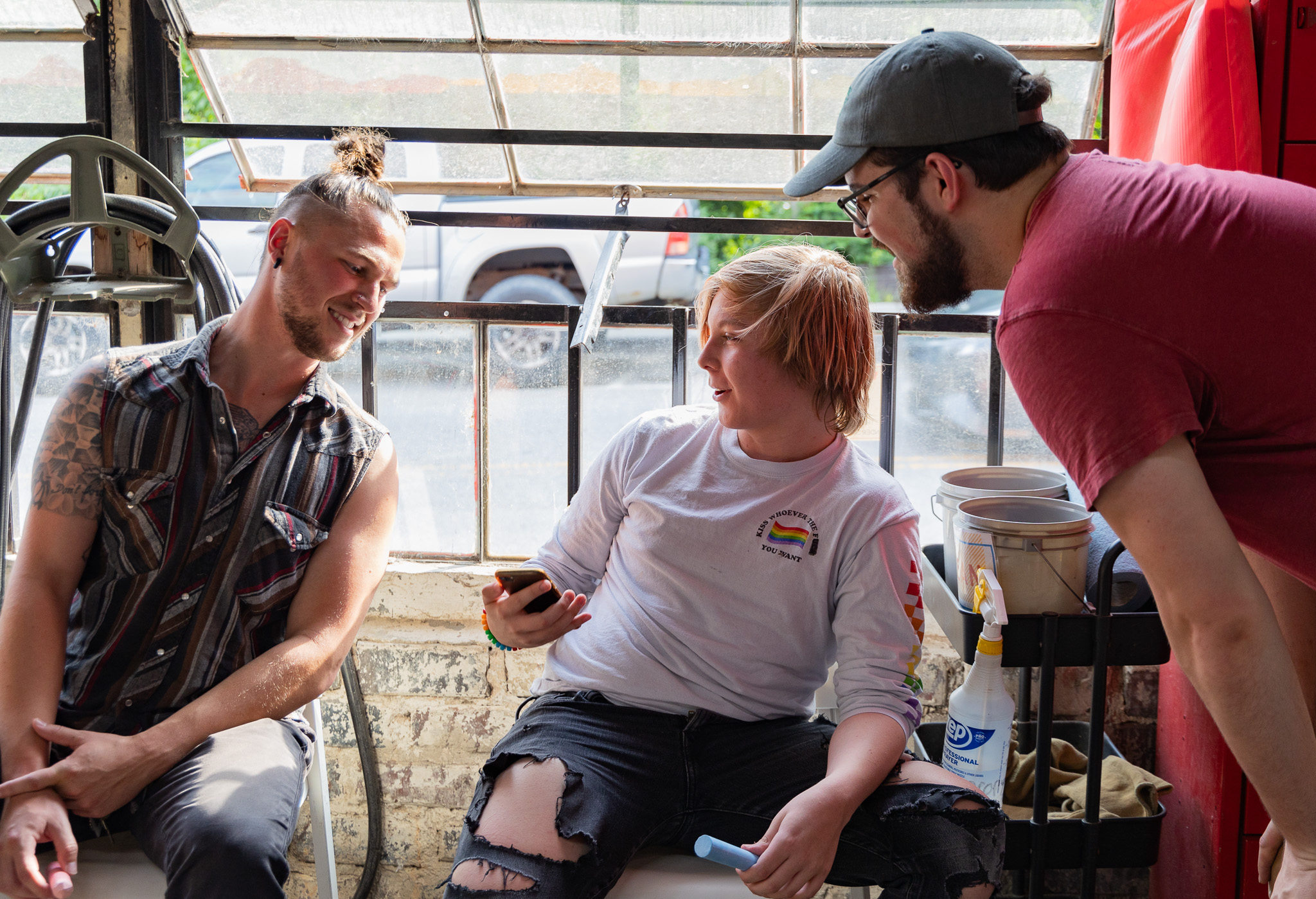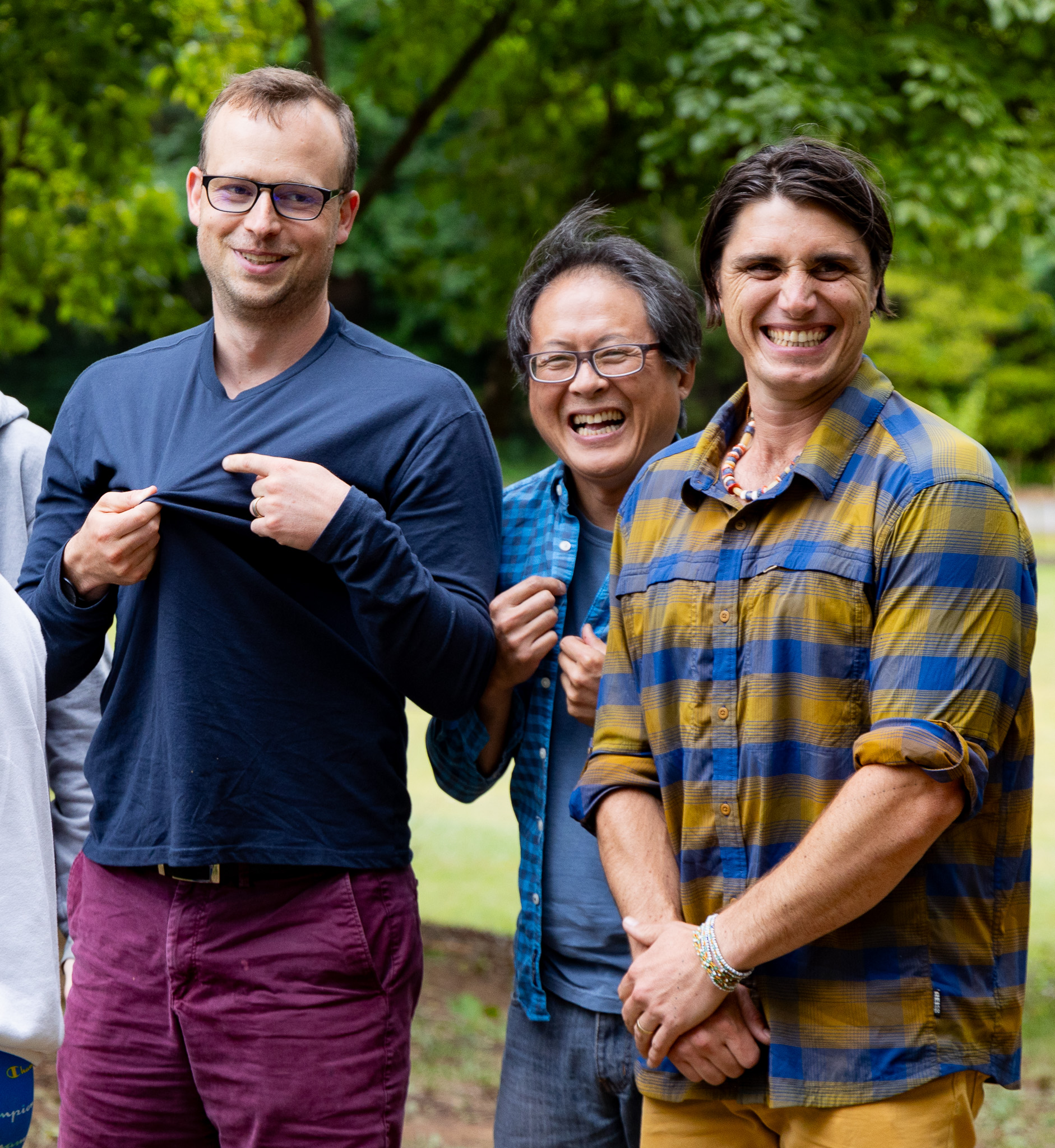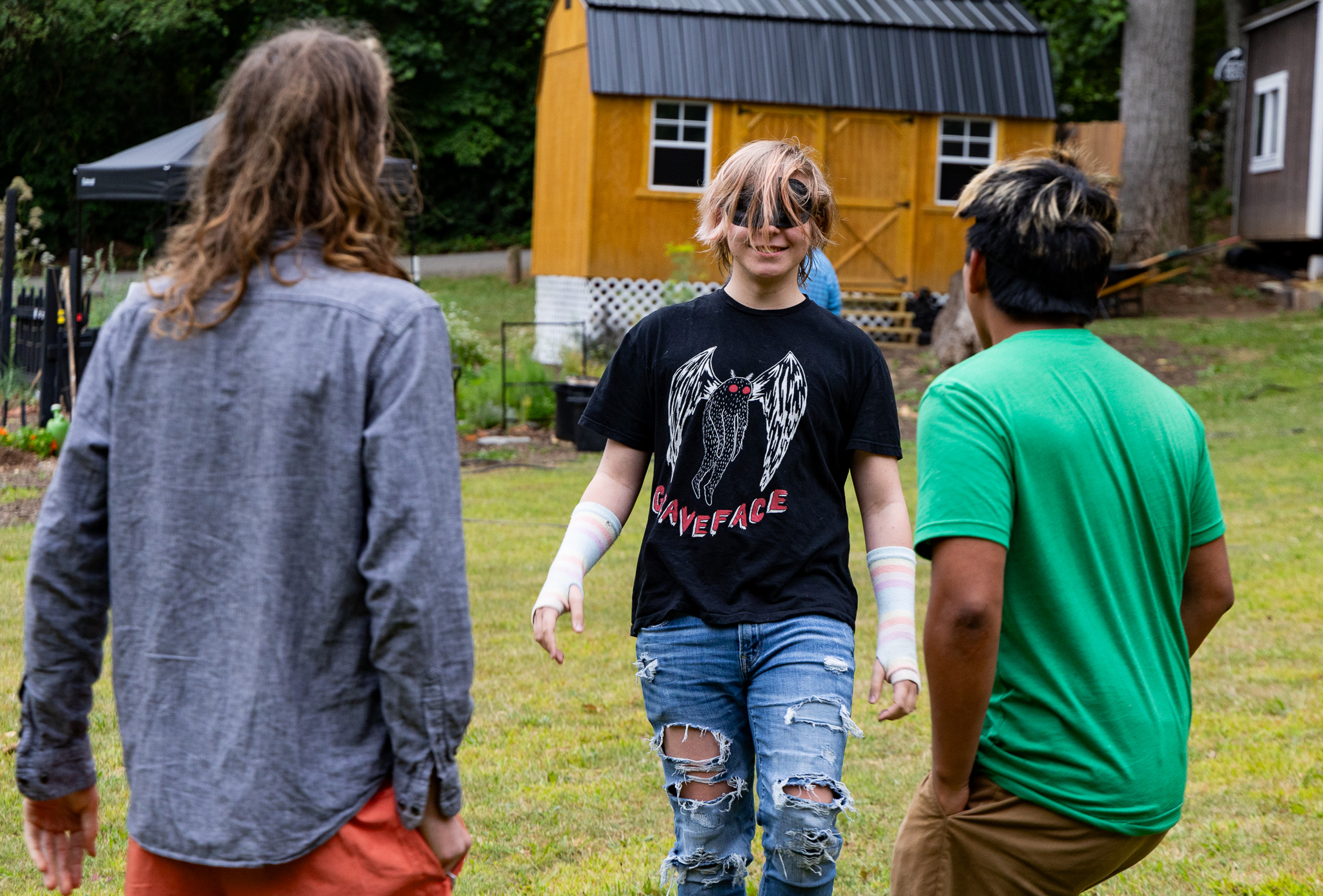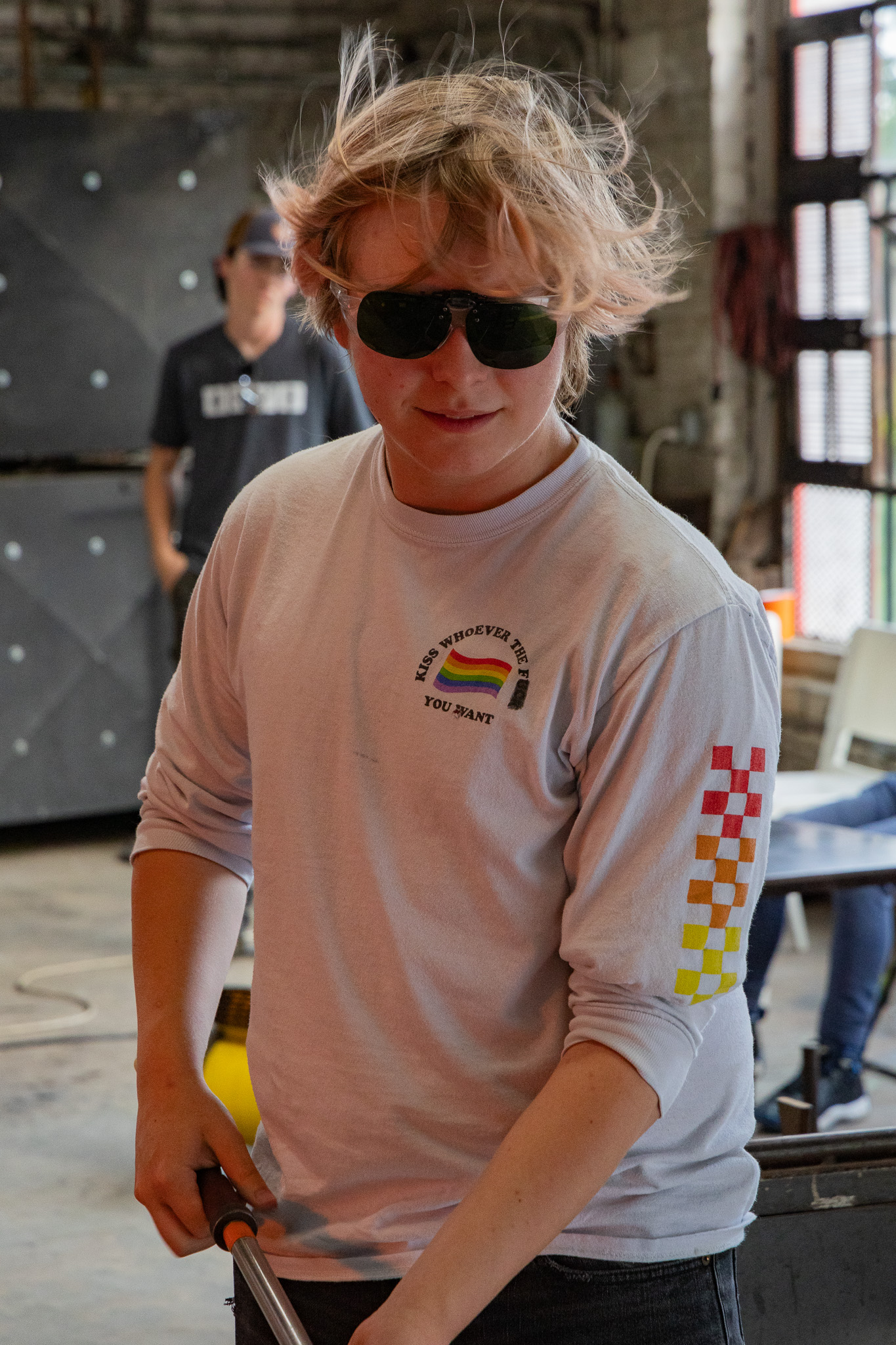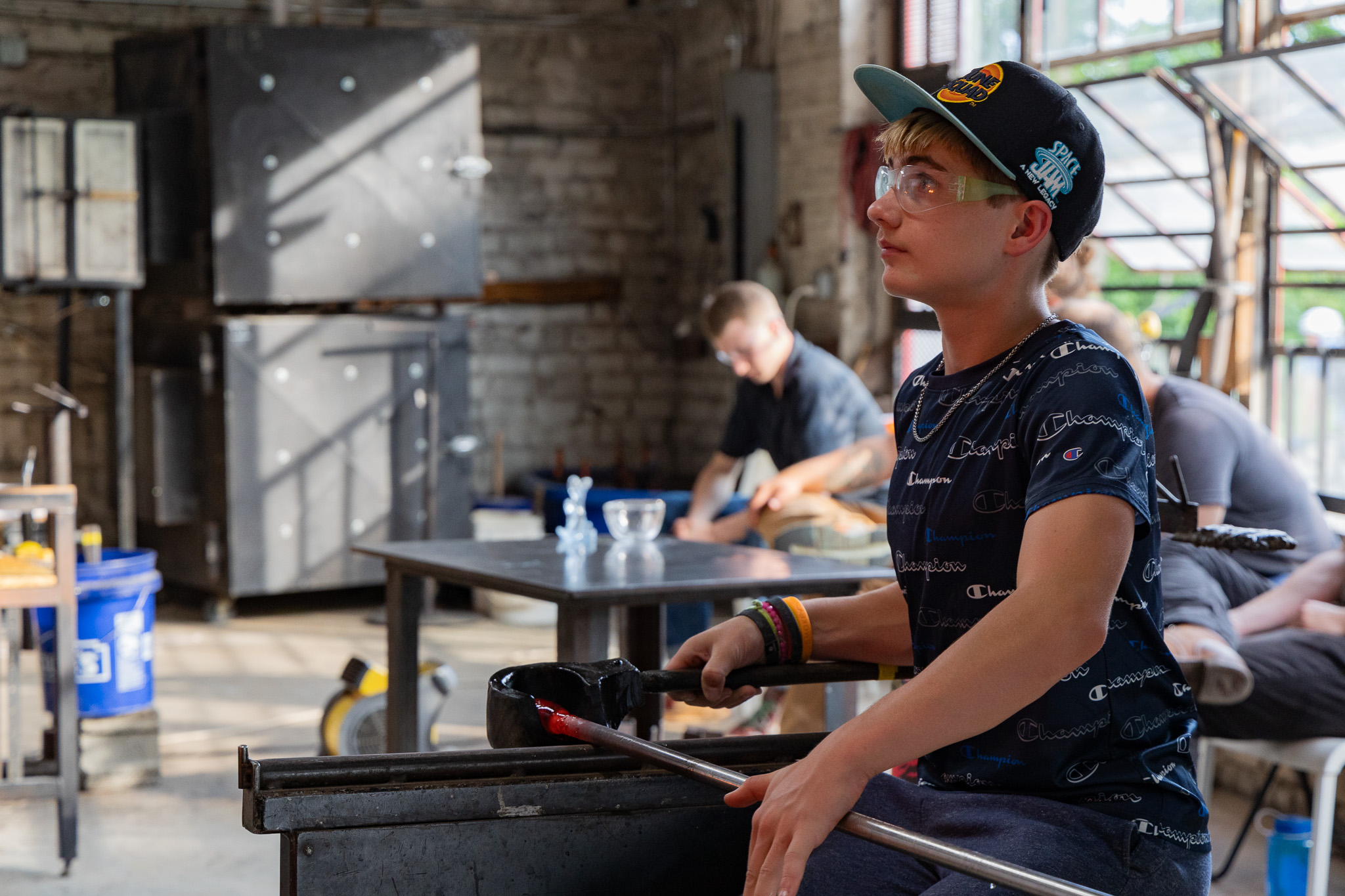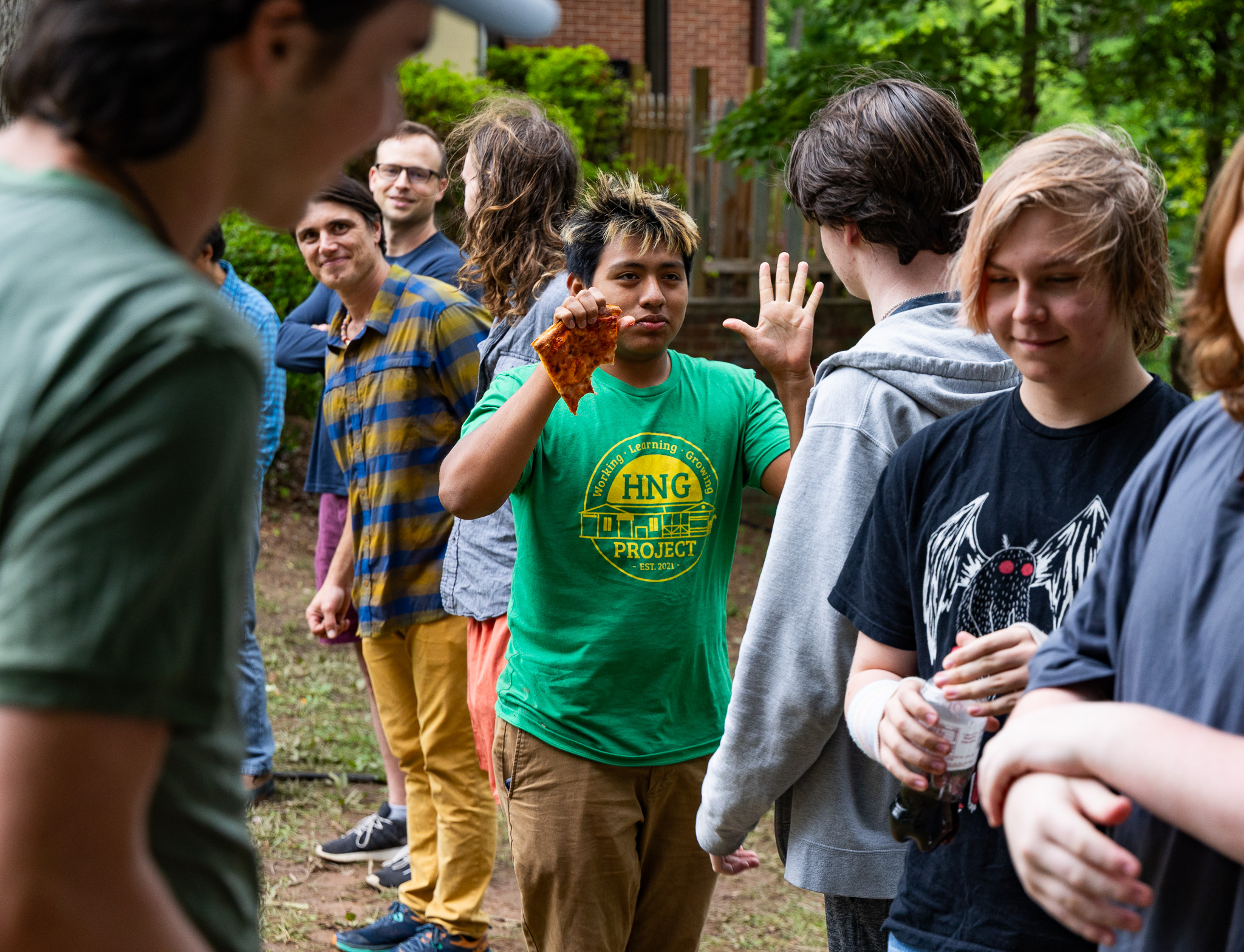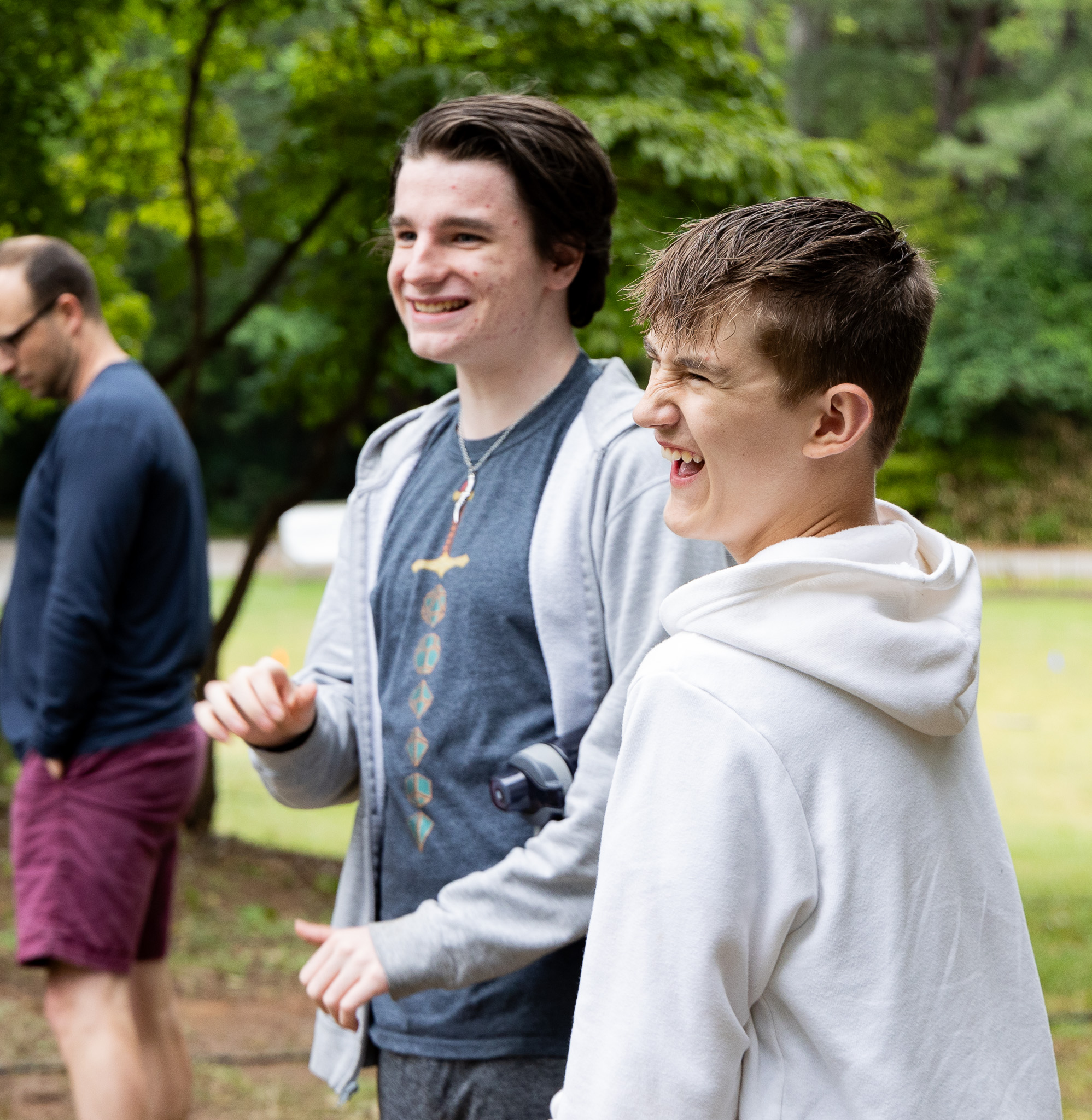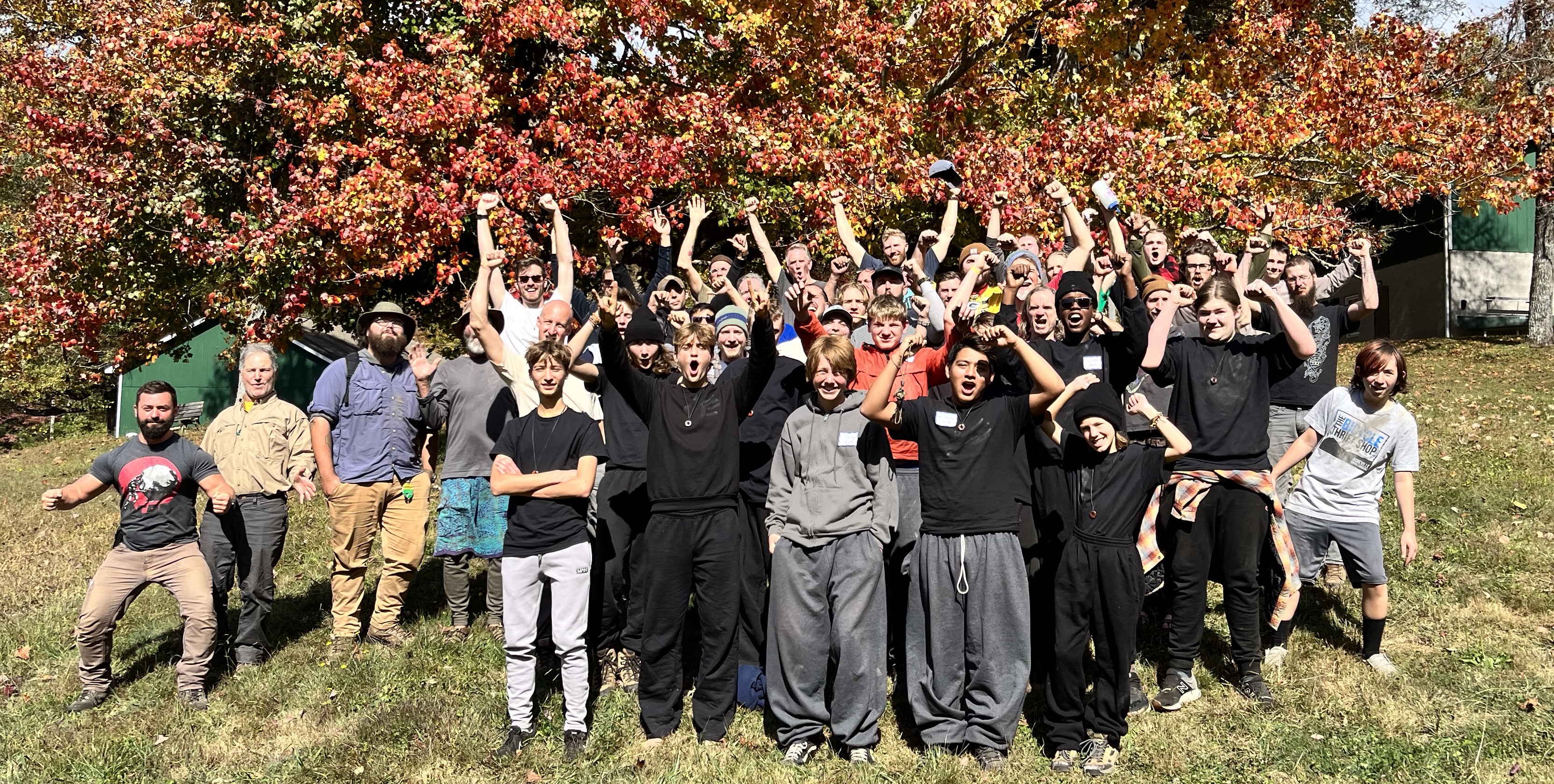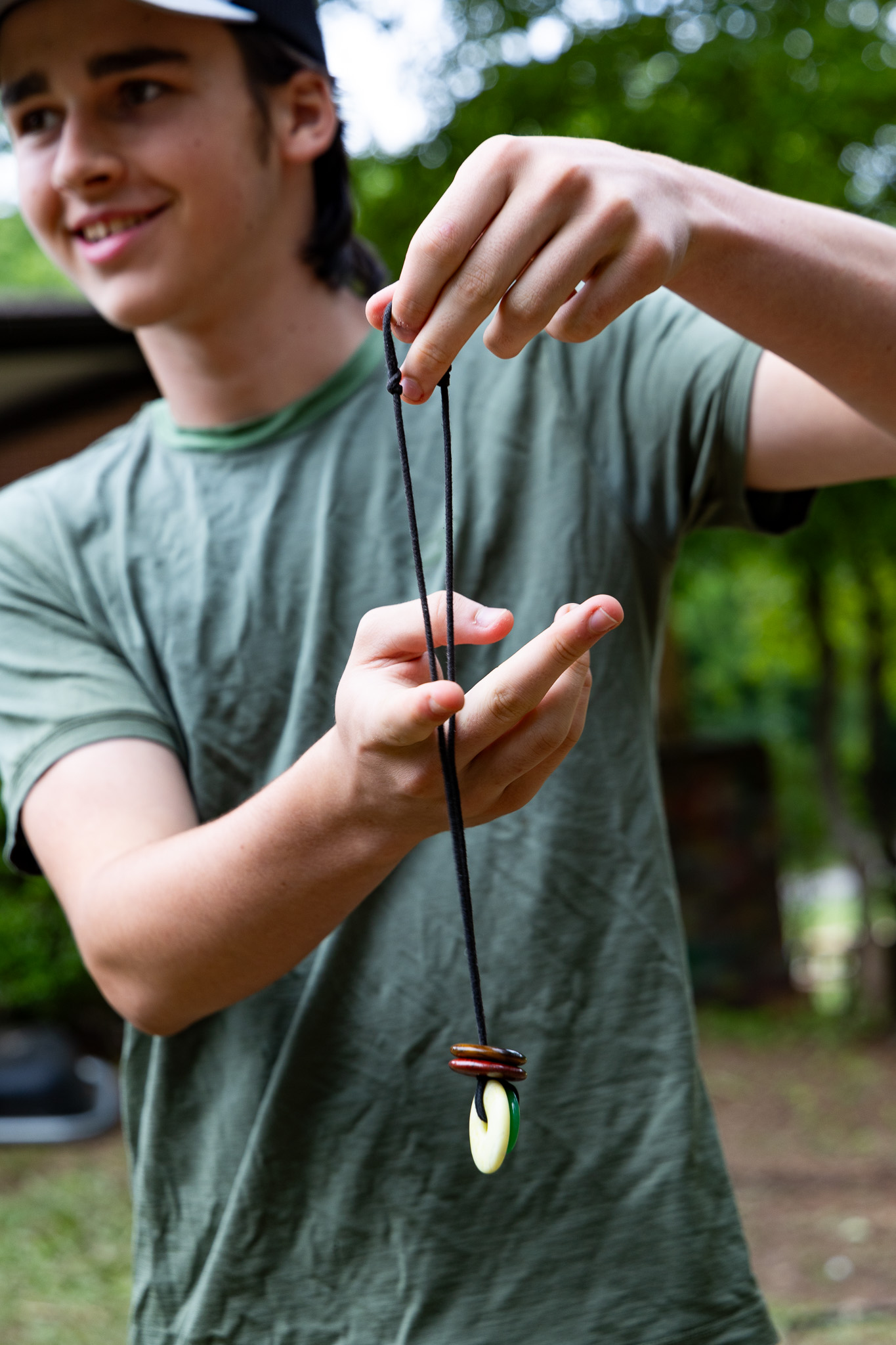Both new and familiar faces trickled onto the field as Journeymen’s Executive Director Skylar Wilson guided students Rowan and Clayton in their attempt to build a campfire. Accompanied by older and younger mentors, Wilson led the group, ensuring smooth facilitation. While some mentees worked alongside their mentors to start the fire, other boys engaged in conversations or explored the surrounding outdoor space. Gradually, the fire came to life, drawing the intergenerational Journeymen group together around its warmth and glow. Wilson begins speaking. He shares how he has been doing in a particularly vulnerable yet composed manner. He is modeling for the students and mentors how honesty and vulnerability can create authentic connections. He then passed the introduction to his left. Inspired by the mentors who shared personal stories and account for the ups and downs of their recent lives, the young men do the same. Although some of these boys met only 20 minutes ago, Journeymen created a space for these young men to feel the security needed to discuss things like family matters, relationships, and the trials and tribulations of being a teenager in 2023.
There are many purposes and outcomes of this unique group meeting — to encourage young men to go out of their comfort zone, to interact with new personalities, and to be vulnerable in a new space. However, the reach of Journeymen extends far beyond a campfire gathering. Journeymen hosts a community network of over 90 highly qualified and trained mentor volunteers per year. They collaborate with Buncombe community partners such as UNC Asheville’s S.T.E.A.M Studio, Warren Wilson College, Asheville City Schools Foundation’s “In Real Life” after-school program, The North Carolina Glass Center, Leaf Global Arts, and many others to provide their students with a variety of mostly free programs that they may not otherwise have access to. These programs include: Rites of Passage Adventure Weekends and day-long wilderness adventures, , service learning groups, artistic and engineering opportunities through their Crafting Passages program, after-school and weekend programs, in-school groups, and after-school tutoring programs, The theme of community travels wherever Journeymen shows shows up in Buncombe County.
“We're focused on holding a variety of different types of programs where a strong sense of community is present.” said Executive Director Skylar Wilson, “ We strive to support parents who are often working full-time jobs while facing intense challenges, like incarceration, that impact their ability to support their teenagers at this crucial time of identity formation. This is where we come in to encourage them to face their challenges while taking responsibility for their lives. We also support mentors through trainings and other opportunities to return, again and again, to give back and to be part of a purpose-driven community. We have many different finely-crafted activities that we do together, but it's not as much about that as it is about supporting that feeling of community… I'll say that we are not a therapeutic or religious program. Still, it can be very therapeutic for everyone involved to be acknowledged and seen when you are going through challenges, while being held in a space of support and acceptance.”
Journeymen's approach has developed over the past fifteen years while recognizing the immense need for adolescent males (ages 12-17) to connect within intergenerational learning environments. The organization specifically focuses on this age group because it understands the profound impact of having support from individuals who can truly empathize with their experiences while challenging them in ways that support their growth. Tommy LeGrand, the Associate Director of Journeymen, explained, "There is a certain power to having the support from someone who may be able to really see and feel what you've gone through. We work with this specific age population because it is a time of significant change."
Throughout middle school and high school, young men go through a transformative period where they face a wide range of rapid changes that require support and guidance. It is widely recognized that this stage can be challenging. Notably, in 2023, with the added pressure of new responsibilities and the growing mental health crisis among young people today. However, Journeymen's programming and mentor groups are mindful not to generalize the needs of adolescent men. They understand the importance of tailoring their approach to address the individual and unique circumstances of each young man they work with in trauma-informed ways.
“I get the sense being in schools and being with teenagers that there isn't a simple, clear-cut understanding of the problem.” Wilson continues to say, “post-COVID, in the age of isolation and social media -it’s clear that there are some big areas of disconnection our teenagers are facing. A recent survey conducted through the Dogwood Health Trust across 18 counties in Western North Carolina found that 86 percent of students reported that mental health was a major issue for them. Most students we work with are also aware of their need for connection and trauma-informed support. This so often becomes a crisis when they internalize or repress the pain and discomfort that is often trying to show them something important about themselves. Again and again, I’ve seen an innate intelligence within each student that guides them toward meeting their needs within our programs.”
Tommy LeGrand, the Associate Director of Journeymen, explained, "There is a certain power to having the support from someone who may be able to really see and feel what you've gone through. We work with this specific age population because it is a time of significant change."
Throughout middle school and high school, young men go through a transformative period where they face a wide range of rapid changes that require support and guidance. It is widely recognized that this stage can be challenging. Notably, in 2023, with the added pressure of new responsibilities and the growing mental health crisis among young people today. However, Journeymen's programming and mentor groups are mindful not to generalize the needs of adolescent men. They understand the importance of tailoring their approach to address the individual and unique circumstances of each young man they work with in trauma-informed ways.
“I get the sense being in schools and being with teenagers that there isn't a simple, clear-cut understanding of the problem.” Wilson continues to say, “post-COVID, in the age of isolation and social media -it’s clear that there are some big areas of disconnection our teenagers are facing. A recent survey conducted through the Dogwood Health Trust across 18 counties in Western North Carolina found that 86 percent of students reported that mental health was a major issue for them. Most students we work with are also aware of their need for connection and trauma-informed support. This so often becomes a crisis when we don’t get the right kind of support and we internalize or repress the pain and discomfort that is often trying to show us something important about ourselves. We often see an innate intelligence within each student that guides them toward meeting their needs within our programs.”
The self-awareness and motivation needed to take ownership over the emotional needs that Wilson is talking about is an essential element that drives Journeymen to the success they have experienced thus far. Whether it be a glass-blowing class or an outdoor activity, the environment is extremely open. This allows young men to safely explore their emotional and relational needs, to the extent that they are ready, with the support of trained mentors, never too far away. Both LeGrand and Wilson stressed the idea of not attempting to persuade the young men they work with; this is essential in building a successful mentor group. Rather than persuasion Journeymen focuses on meeting their growing boys at whatever stage of life they are in, which in most cases is an early stage of transformation and exploration. Working with young men, though, affords a remarkable opportunity to dramatically impact their lives and their family’s lives in their process of growth.
”We are in the business of planting seeds,” explains LeGrand. “We don't take care of the plant, we don't grow the plant. We don't get to watch it bloom. We don't get to see the fruit that comes of it.”
LeGrand describes the work of Journeymen as planting seeds because they firmly believe that raising self-motivated, non-judgmental, and integrity-driven young men requires the collective effort of an entire community. While the mentors at Journeymen may plant the seeds, they recognize that supporting resilient, emotionally intelligent, and driven humans requires the support of dozens of people from diverse backgrounds across the communities where their students live and interact. They hope that the skills modeled in Journeymen groups and activities give the young men the confidence to put themselves into other new situations that can often be challenging.
Self-directed learning is one of the primary encouragements young men receive from mentors at Journeymen - which once again explains why they offer such a wide variety of programming. However, like most non-profits in Buncombe County- including United Way of Asheville and Buncombe County- their work relies on sustaining community ties and working collaboratively with the City and County School systems, local non-profits, and other similar programs. “United Way has given us so many opportunities to really get involved in the direct lives of these guys that might not have that opportunity otherwise,” said LeGrand as he reflected on the relationship between Journeymen and United Way. “The biggest way that we've seen these collaborations is being able to grow our programming, whether that be strictly financially or really letting us utilize their resources.”
Like much of our work, our collaborative efforts with Journeymen happens within our public schools. Several United Way Community School Coordinators have facilitated the relationships to make weekly mentor Journeymen groups a reality. The impact of Journeymen’s presence is evident to anyone who speaks to the school counselors or Community School Coordinators. Even teachers will often mention that their students repeatedly say that the days when they can go to the Journeymen group are often their favorite school days. Wilson attributes this to how the groups are facilitated. “We're not trying to push them towards something”, he says,” It's more of an out-breath — We see you, we're here together. Not like you have to achieve something to get our appreciation.”
While much of Jourenymen’s work happens through schools- you do not have to be in the school community to support the program. And yes, dear reader, that includes you! You have the power to support Journeymen in expanding their after-school programs while becoming an integral part of the community that uplifts and guides boys on their journey into manhood. For those who identify as male, Journeymen is always seeking mentors who possess emotional stability, resilience, and reliability to serve as positive role models for young men aged 12-17. Your involvement as a mentor can make a profound difference in their lives. For those who do not identify as male or are looking for alternative ways to support Journeymen's incredible work, you can contribute by making a donation. Your generosity will help cover the costs of mentor background checks, transportation to programs, hosting trainings and workshops for men and boys, ensuring consistent support for group meetings, and facilitating meaningful outings and trips.
By joining forces with Journeymen, you can contribute to the growth and development of young men, fostering a supportive and empowering environment that cultivates their potential. Your involvement and support are invaluable in shaping a brighter future for these boys as they transition into responsible and confident adults.
Don’t Stop There…
Learn more about Journeymen and make a donation, HERE
To learn more about United for Youth, Click HERE
If you enjoyed this blog, consider signing up for our monthly newsletter


